Are we getting are priorities right as a nation?
Sri Lanka, a nation known for its rich history and diverse culture, is grappling with a deeply rooted issue that has permeated various aspects of its society—the false supremacy mindset. This mindset is reflected in the country's disproportionate focus on cricket, particularly in the face of pressing issues related to basic human needs, economic instability, and political mismanagement.
The International Cricket Council (ICC) membership issue serves as a poignant example of Sri Lanka's skewed priorities. Instead of addressing the longstanding problems of nepotism, racial and caste divisions, power struggles, corruption, and governance failures that have plagued the nation since its independence, the collective consciousness seems fixated on the potential loss of cricketing prestige.
Decades of mismanagement and corruption have left a significant portion of the population grappling with the harsh realities of life. While the country's leaders engage in political maneuvering and prioritize personal gains over public welfare, a substantial number of Sri Lankans struggle to meet their basic needs, such as access to adequate food and nutrition. The consequences of this mismanagement are dire, with thousands facing hunger and poverty.
Nepotism, deeply ingrained in the fabric of Sri Lankan society, has perpetuated a system where positions of power and influence are often handed down within a select few families. This not only hampers meritocracy but also leads to a concentration of resources in the hands of the privileged, leaving the majority of the population marginalized and disadvantaged.
The specter of racial and caste divisions further exacerbates the challenges facing Sri Lanka. These divisions, rather than being addressed head-on, are exploited by politicians for their own gain. As a result, social harmony is sacrificed, hindering the nation's progress towards a more inclusive and equitable society.
The obsession with cricket, particularly at the expense of addressing fundamental issues, is indicative of a misplaced sense of national pride. While cricket undoubtedly holds cultural significance in Sri Lanka, it should not overshadow the pressing need to address systemic issues that threaten the well-being of a significant portion of the population.
In the streets and media, conversations revolve around cricket, with little attention given to the more pressing concerns of the people. The passion for the sport, while understandable, should not blind the nation to the urgent need for economic reforms, transparent governance, and social justice.
Even within the hallowed halls of the parliament, where crucial decisions affecting the nation's future are made, the discourse often veers towards cricket rather than addressing the root causes of poverty and instability. The disconnect between the political elite and the everyday struggles of the people further widens the gap between rhetoric and reality.
As the country grapples with severe financial instability, exacerbated by a history of corruption and mismanagement, the basic needs of the population, such as access to food, become a luxury for many. The economic woes are not merely abstract figures on a balance sheet; they manifest in the empty stomachs of thousands who bear the brunt of policy failures.
It is imperative for Sri Lanka to reassess its priorities and shift focus from cricket-centric conversations to addressing the systemic issues that have plagued the nation for far too long. The false supremacy mindset, perpetuated by political and social elites, must be dismantled to pave the way for a more just and equitable society.
The media, as a powerful influencer of public opinion, should play a pivotal role in redirecting the narrative towards the real challenges faced by the nation. By highlighting the consequences of mismanagement, corruption, and inequality, the media can foster a collective awareness that transcends the allure of cricketing success.
The people, too, have a crucial role to play in demanding accountability from their leaders. By prioritizing candidates who champion transparency, inclusivity, and genuine welfare policies, voters can steer the country towards a more sustainable and equitable future.
In conclusion, Sri Lanka's preoccupation with cricket at the expense of addressing fundamental issues reflects a false supremacy mindset that has permeated its societal fabric. The ICC membership issue serves as a symbolic wake-up call, urging the nation to confront the long-standing challenges of nepotism, racial and caste divisions, corruption, and governance failures. It is high time for Sri Lanka to shift its focus from the cricket pitch to the pressing needs of its people, fostering a society that prioritizes justice, inclusivity, and the well-being of all its citizens. Sent from my iPhone
-
Still No Comments Posted.



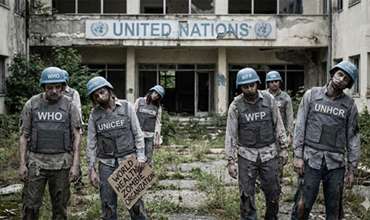



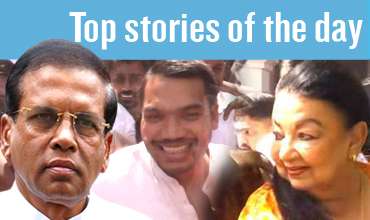

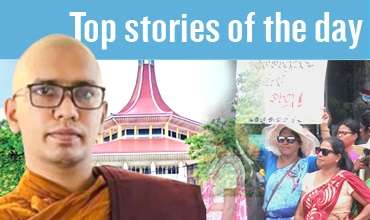
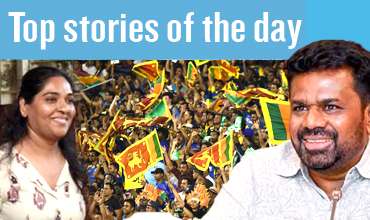



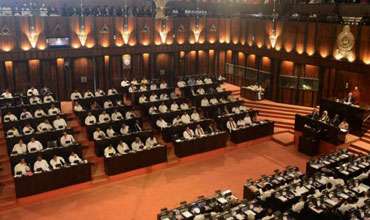

Leave Comments